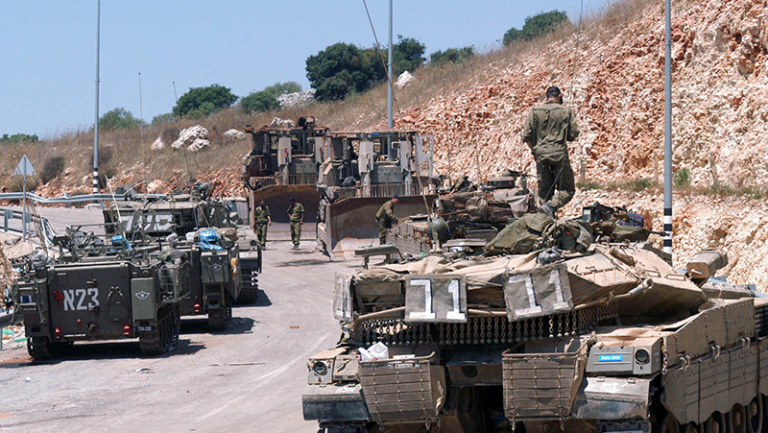Israeli military officials said they intercepted Hezbollah’s surface-to-surface missile, launched after Israeli strikes on Lebanon killed hundreds of people, as the two sides teeter towards an all-out war.
Israel’s military is preparing for a possible ground operation in Lebanon, according to its army’s top general.
Addressing troops on the northern border, IDF Chief of General Staff Herzi Halevi said Wednesday the latest Israeli airstrikes were designed to” prepare the ground for your possible entry and to continue degrading Hezbollah.”
Meanwhile, Hezbollah hurled dozens of projectiles into Israel, including a missile aimed at Tel Aviv that was the militant group’s deepest strike yet.
In an apparent reference to the missile aimed at Tel Aviv, he said: “Today, Hezbollah expanded its range of fire, and later today, they will receive a very strong response. Prepare yourselves.”
The missile set off air-raid sirens in Tel Aviv and across central Israel. There were no reports of casualties or damage. The military said it struck the site in southern Lebanon where the missile was launched.
Hezbollah said it fired a Qader 1 ballistic missile targeting the headquarters of Israel’s Mossad intelligence agency, which it blames for a recent string of targeted killings of its top commanders and for an attack last week in which explosives hidden in pagers and walkie-talkies killed dozens of people and wounded thousands, including many Hezbollah members.
Israel has moved thousands of troops who had been serving in Gaza to the northern border. It says Hezbollah has some 150,000 rockets and missiles, including some capable of striking anywhere in Israel, and that the group has fired some 9000 rockets and drones since last October.
The Lebanese health minister said continued Israeli strikes on Wednesday killed more than 50 people. That raised the death toll from the past three days to 615, with more than 2,000 people wounded.
This week has been the deadliest in Lebanon since the bruising monthlong war between Israel and Hezbollah in 2006. With tensions still escalating, the Israeli military said it would activate reserve troops.
Israel said Wednesday its air force had struck some 280 Hezbollah targets across Lebanon by early afternoon, including launchers used to fire rockets on the northern Israeli cities of Safed and Nahariya.
Fleeing families have flocked to Beirut and the coastal city of Sidon, sleeping in schools turned into shelters, as well as in cars, parks and along the beach. Some sought to leave the country, causing a traffic jam at the border with Syria.
The United Nations said more than 90,000 people have been displaced by five days of Israeli strikes on Lebanon.
The UN Office for the Coordination of Humanitarian Affairs said Wednesday that a total of 200,000 people have been displaced in Lebanon since Hezbollah began firing rockets into northern Israel nearly a year ago, drawing Israeli retaliation.
Israel has vowed to do whatever it takes to ensure its citizens can return to their homes in the north, while Hezbollah has said it will keep up its rocket attacks until there is a cease-fire in Gaza, something that appears increasingly remote. Euro News


